Writing a Great Resume: Tips from a Professional Resume Writer

Are you looking for a job but struggling to write a great resume? Don't worry, you're not alone! A resume can be daunting, even for the most experienced job seekers. But with the right tips and tricks from a professional resume writer, you can create a compelling and effective resume that will help you stand out in today's competitive job market.
In this blog post, we will share some simple resume-writing tips from a professional resume writer that will help you create a resume that stands out. However, let's start by identifying the obvious differences between the documents that candidates usually get confused with: resumes, CVs, and cover letters.
Resume Vs CV Vs Cover Letter
Writing a job application can be daunting, but knowing which type of document to use can help make the process easier. When applying for a job, you may be asked to provide a resume, a curriculum vitae (CV), and/or a cover letter.
Each document serves a different purpose, so knowing which one to use in any given situation is important. In this section, we'll first talk about the differences between a resume, a CV, and a cover letter, so you can ensure you're using the right document for the job.
Resumes
A resume is a document that showcases your professional background and experience. For it to be effective, it has to be tailored to the position or industry you are applying to. A well-written resume can help you stand out from other applicants and increase your chances of getting hired.
Your resume should include your contact information, work experience, education, relevant certifications or specializations, and your list of skills. You may also want to include a brief summary of yourself, any volunteer work you've done, and awards or honors you've received. It's important to be concise and ensure that the most relevant and impressive information is at the top of the document.
To make it easier for hiring managers to scan through your resume, it’s best practice to use bullet points, lists, and sections with clear headers. In some cases, you may also want to consider including an ‘Interests’ section that highlights hobbies and activities outside of work. This gives employers insight into your passions and character outside of the workplace.
Resumes are generally one page long unless an employer specifically requests for them to be longer.
Curriculum Vitae
A curriculum vitae (CV) is a comprehensive document used to highlight your academic and professional qualifications. It is typically longer than a resume, as it outlines a more detailed account of your education, work history, publications, research, awards, and other accomplishments. Many employers prefer a CV over a resume when seeking a more specialized position.
One of the easiest ways to find the right job using a CV is to use Indeed's advanced search feature. By entering in criteria such as experience level, industry, job type, location and desired salary, you can quickly filter through potential jobs that best match your qualifications. You can then attach your CV to the job application and get connected with employers quickly.
With Indeed, you have the opportunity to be seen by employers worldwide. Companies receive hundreds of applications for each open position; having a professionally written CV allows you to stand out.
Investing in a great quality resume builder or spending some time fine-tuning your CV will show recruiters that you’re serious about finding the perfect job. You may also take advantage of tools or services that review CVs to get personalized feedback on their effectiveness.
Cover Letters
Cover letters are an essential part of the job search process. They provide employers with additional information about your qualifications and help to demonstrate your interest in a position. A well-crafted cover letter can distinguish between getting an interview or being overlooked.
When writing a cover letter, it is important to tailor it to the job you are applying for. Make sure that you research the company and understand its values and mission so that you can write a letter that speaks directly to their needs.
In addition to providing a brief overview of your qualifications, experience, and skills, your cover letter should also make a case for why you would be the best fit for the position.
The format of your cover letter will vary depending on the job you are applying for and the specific instructions from the employer. Generally speaking, it should include a header, introduction, body, and closing paragraph.
In the header, include your name, contact information (email address), and the date. In the introduction, introduce yourself and explain why you are writing. Explain how your qualifications meet the requirements of the job.
The body of your cover letter should be used to demonstrate your understanding of the company’s needs and how you meet them. Showcase your qualifications by using specific examples and outlining the benefits you can bring to the company.
In the closing paragraph, thank the hiring manager for their time and reiterate your interest in the position. Include any contact information where they can reach you if they have any questions.
Cover letters are often required for any job application and should not be overlooked. Writing a strong cover letter can help to make you stand out from other applicants and give you a better chance of landing an interview.
How to Write a Professional Resume
Now that you understand the differences between resumes, cover letters, and CVs, let us share some tips to help you craft a professional-looking resume. With these tips, you can create an impressive resume to help you land your dream job!
Tip #1: Keep it simple
When writing your resume, it’s important to keep things as simple and straightforward as possible. You don’t want to be overly flowery in your language or try to include too many unnecessary details. Keep the tone professional and ensure each sentence is packed with relevant information.
Avoid big words and jargon unless you’re certain they are appropriate for the job you are applying for. Your goal should be to communicate your skills and experience in a concise, easy-to-understand way. Remember, the goal of your resume is to get you an interview – not win a Nobel Prize!
Instead of wasting time on excessive detail, focus on creating a clear summary of your achievements and qualifications that demonstrate why you would be a great addition to the company. Ensure there are no typos or errors in your work – these can leave a poor impression on employers.
Finally, consider adding a section highlighting any awards or recognition you have received throughout your career. This can help add a layer of credibility to your resume and help set you apart from other applicants.
In general, there isn't a one size fits all approach to resumes. However, there are some basic principles that you can use as guidance when constructing yours. For example, no matter what type of position you're looking for, tailor your resume specifically to the job requirements outlined by the employer. And if any key qualifications are mentioned in the job listing, emphasize them on your resume so that recruiters know you are a good fit for the role.
Tip #2: Use action words
When writing your resume, be sure to use action words to convey what you have accomplished. Action words such as "achieved," "created," "developed," and "improved" are more powerful than simply stating what you did. This gives the employer a better understanding of how you performed in your previous roles and how your skills and experience can benefit the company.
For example, rather than saying, "I wrote reports," you could say, "I developed and wrote monthly reports to track progress and identify areas of improvement." Using action words shows you are a proactive problem solver who can bring value to an organization.
If possible, avoid cliches and jargon - they won't make you stand out from other candidates and will only distract you from your qualifications. Instead, focus on quantifiable achievements with tangible results when listing accomplishments on your resume.
Tip #3: Highlight your accomplishments
Highlighting your accomplishments is one of the best ways to make your resume stand out. Accomplishments demonstrate that you have specific skills, abilities, and knowledge that are relevant to the position you’re applying for.
When listing your accomplishments on your resume, use clear and concise language to explain how you achieved a certain goal. For instance, instead of saying “helped with team project”, say “initiated and managed a team project which resulted in a 10% increase in sales”. Try to include quantifiable metrics whenever possible.
Also, focus on accomplishments most relevant to the job you’re applying for. Highlight any awards or honors you’ve received and any positions of responsibility you held. If applicable, list any volunteer experience or internships you completed and the outcomes or successes of those projects.
Ensure that all of your accomplishments are recent. Old accomplishments are less likely to be relevant and may even take away from your more impressive recent achievements.
By highlighting your accomplishments on your resume, you can give potential employers a better idea of the value you bring to their organization. With the right emphasis and strategic formatting, you can show employers you have the skills and experience necessary to succeed.
Tip #4: Use numbers
Adding numbers to your resume helps to paint a clear picture of your achievements and professional experience. Whenever you can, include numerical information that supports the skills you have listed in your resume.
For example, if you include a job as a sales representative, you could include information such as “Generated $250K in sales in my first year” or “Achieved 120% of monthly targets.” This is a great way to illustrate to employers how you can make an impact with your skills.
You can also include percentages for projects you completed or goals you achieved. If you were part of a team project, you could include how much each person was responsible for completing. For example, “Contributed 25% to the successful completion of a project.” Including percentages can also help employers see how much of the overall project you were responsible for.
Additionally, including facts about awards, certifications or honors you’ve achieved is another great way to show off your accomplishments. For example, “Received Employee of the Month three times in 2019” or “Earned Level 3 Certification in 2018.” This provides employers with concrete evidence that you have the skills and expertise they’re looking for in an employee.
Using numbers on your resume is a great way to stand out from the crowd and help employers better understand who you are and what you can bring to the table. Don’t be afraid to add numbers where appropriate – they can help employers quickly see your value!
Tip #5: Tailor your resume to each job
No matter how perfect your resume is, it won’t be effective if you don’t tailor it to the job you’re applying for. It’s important to do your research and customize your resume accordingly. For each job you apply to, you should:
Review the job description and ensure that your resume clearly reflects the qualifications they seek.
- Match the keywords used in the job description to your resume.
- Highlight any accomplishments or experiences that relate to the role you’re applying for.
- Use language that reflects the company culture and values.
- Make sure all contact information is correct and up-to-date.
By tailoring your resume for each job, you can ensure that the employer sees the most relevant information about you and your skills.
Tip #6: Format your resume properly
However, simply tailoring the content isn't enough; ensuring your resume looks professional and well-presented is also critical. To ensure that your resume looks great, you should:
- Stick with a standard font such as Times New Roman or Calibri.
- Avoid going overboard with font sizes and formatting; keep it simple.
- Organize your resume in a clear format that makes sense to employers.
- Break up text into sections, so it's easier to read and scan quickly.
- Leave plenty of white space, so it doesn't look cluttered or overwhelming.
- Use high-quality paper when printing hard copies of your resume.
Focusing on your resume's appearance and content can help ensure that your credentials stand out from the crowd and make a great impression on employers.
Tip #7: Edit, edit, edit
The last and perhaps most important step in writing a great resume is to edit, edit, and edit again. You may not think that you need to go through this much effort to make sure your resume looks perfect, but it is crucial to ensure you’re submitting the best version of your resume.
Start by reading through your entire resume. Ensure all information is up-to-date and relevant to the job you’re applying for. If there’s something that needs to be updated or removed, make the change now.
After reading through your resume, look for any errors such as spelling mistakes, grammar errors, and formatting problems. Even if you have a perfect resume in terms of content, sloppy editing can ruin its impact. To avoid this, proofread your resume multiple times and have someone else look at it. They may spot something you didn’t.
Most importantly, check for typos and other small errors that can easily slip past you. An error-free resume will leave a great impression on recruiters and hiring managers. With proper editing and proofreading, your resume will be ready to make a lasting impression.
In Summary
Writing an effective resume can be daunting, but a professional resume writer can make it easier with a few simple tips. Keep your resume simple, use action words to highlight your accomplishments, use numbers to quantify your experience and tailor your resume to each job you apply for. Above all, edit your resume thoroughly before submitting it. Doing so will ensure that you present your best self to potential employers. With these tips in mind, you'll be well on your way to writing an effective and attention-grabbing resume.
You May Also Like
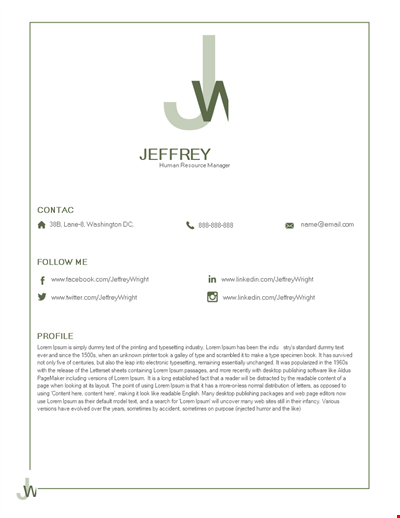
Management Resume Us Letter
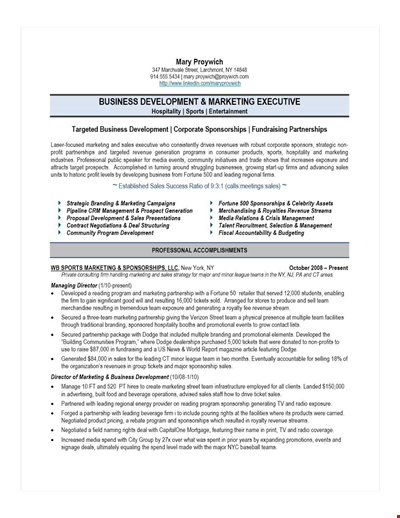
Experienced Corporate Sponsorship Sales Resume - Boost Your Career Today!
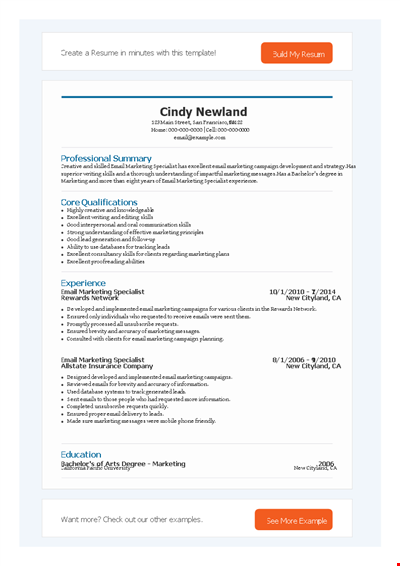
Resume Your Email Marketing Campaign - Boost Engagement & Drive Results
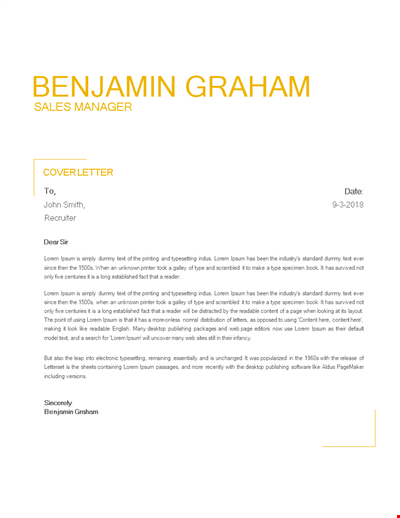
Experience Resume Cover Letter Us Letter

Executive Resume Template Us Letter
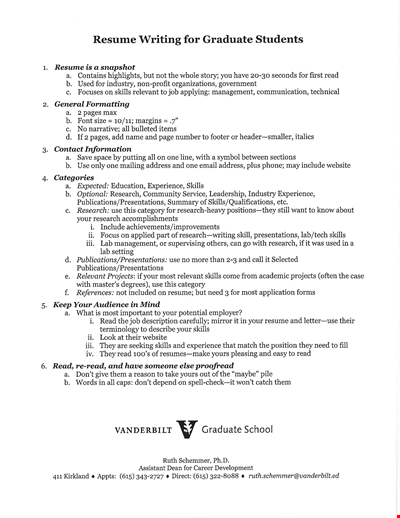
Engineering Resume Template for Fresh Graduates | Sample & Tips
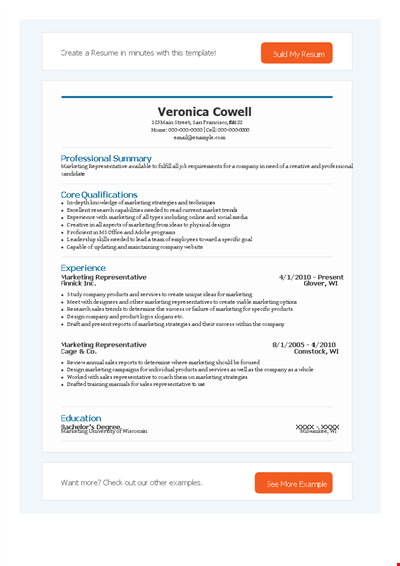
Professional Marketing Representative Resume
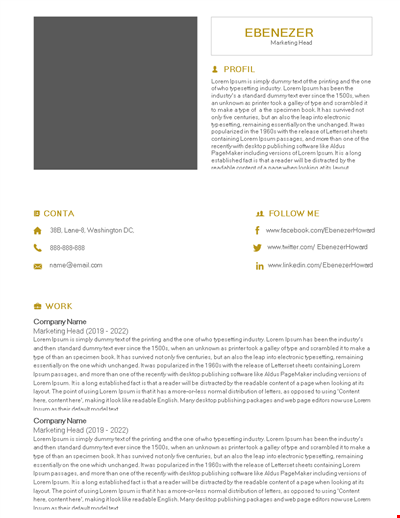
Simple Resume Template Us Letter